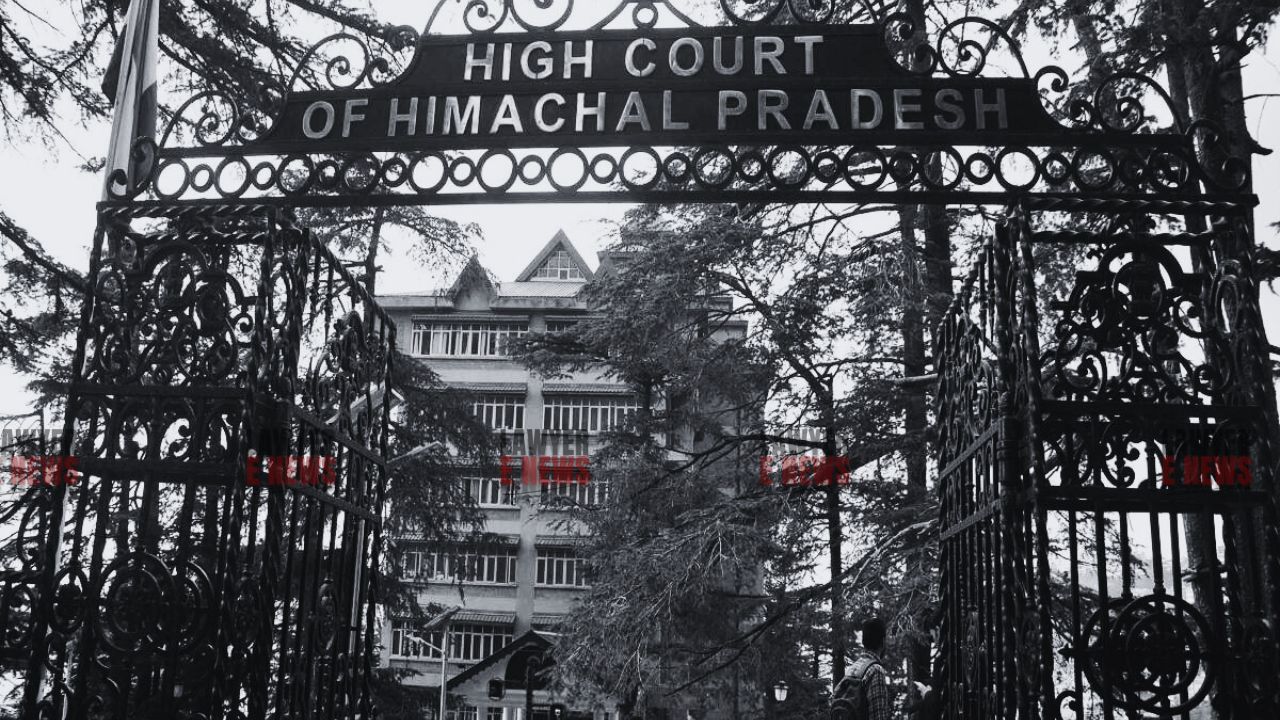-
by Admin
15 February 2026 5:01 PM



On September 20, 2024, the Himachal Pradesh High Court in Virender Singh vs. Ajay Singh [CRIMINAL REVISION NO. 240 OF 2022] dismissed the revision petition challenging the conviction and sentence under Section 138 of the Negotiable Instruments Act, 1881, for dishonour of a cheque due to insufficient funds. The court upheld the trial court's decision, sentencing the petitioner to eight months of simple imprisonment and a fine of ₹2.5 lakh. Justice Rakesh Kainthla ruled that the petitioner failed to rebut the statutory presumption of consideration under Sections 118 and 139 of the NI Act.
The case arose when the respondent, Ajay Singh, a government contractor, filed a complaint against the petitioner, Virender Singh, for the dishonour of a cheque amounting to ₹2 lakh, which was issued to discharge a debt. The cheque, drawn on the Kangra Central Cooperative Bank, was dishonoured for insufficient funds. A legal notice demanding payment was sent to the petitioner, but no payment was made within the statutory 15-day period, prompting the respondent to initiate legal action under Section 138 of the Negotiable Instruments Act.
The trial court convicted the petitioner, sentencing him to eight months of simple imprisonment and imposing a fine of ₹2.5 lakh, with the conviction being upheld on appeal by the Additional Sessions Judge. The petitioner then approached the High Court through a revision petition, contesting both the conviction and sentence.
Presumption of Consideration (Section 139, NI Act): The petitioner admitted issuing the cheque but claimed it was a blank cheque given as security for ₹50,000, rather than for legal liability.
Burden of Proof and Rebuttal: Under Sections 118 and 139 of the NI Act, once a cheque is issued, it carries a presumption that it was issued for a legally enforceable debt or liability. The onus to rebut this presumption lies with the accused, which the petitioner failed to do convincingly.
Service of Notice: The court also examined whether the statutory demand notice was properly served under Section 27 of the General Clauses Act. The complainant provided proof of service, and the petitioner failed to make any payment or respond within the required timeframe.
The petitioner had not denied issuing the cheque during cross-examination, thus triggering the presumption under Section 139 of the NI Act. The court cited the Supreme Court’s ruling in Bir Singh vs. Mukesh Kumar (2019) that even a blank cheque signed and handed over voluntarily carries the presumption of being issued for legal liability.
The petitioner's claim that the cheque was issued as a security for a smaller sum of ₹50,000 was unsupported by any documentary evidence or testimony. No defence evidence was provided to rebut the statutory presumption of consideration.
The court also noted that the statutory notice of demand had been served to the petitioner’s correct address, and the petitioner’s failure to respond or pay the cheque amount within 15 days further strengthened the respondent's case.
Justice Kainthla emphasized the Supreme Court's position that “bare denial of debt or liability does not suffice to rebut the presumption under Section 139 NI Act.” In the absence of credible evidence from the petitioner, the presumption stood unchallenged.
Regarding the sentence, the court referred to the Supreme Court's guidelines in Kalamani Tex v. P. Balasubramanian (2021), which endorsed the imposition of fines up to twice the cheque amount with interest, noting that the fine imposed in this case was appropriate given the two-and-a-half-year delay in payment and the legal costs incurred by the respondent.
The High Court upheld the petitioner’s conviction and sentence, concluding that all essential elements of the offence under Section 138 NI Act had been proven beyond reasonable doubt. The court found no error in the concurrent findings of the lower courts and emphasized that the penal provisions of the NI Act serve both punitive and compensatory purposes to instill confidence in commercial transactions.
Date of Decision: 20th September, 2024
Virender Singh vs. Ajay Singh
